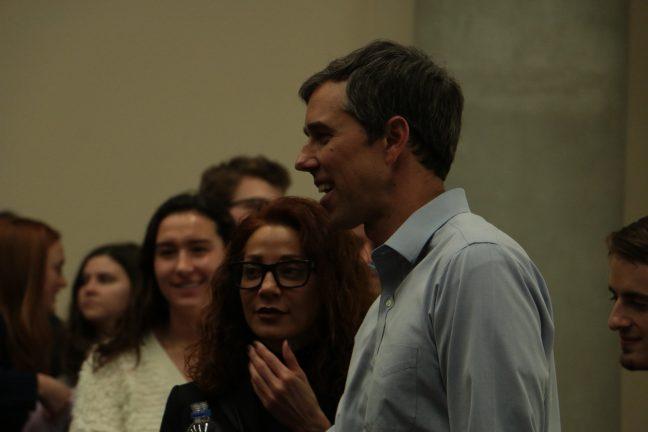Over the past few weeks, Mayor of South Bend, Indiana Pete Buttigieg has been rising in stardom — the new hotshot Democrat in a very crowded field of candidates vying for presidency in 2020.
In early March, a CNN town hall rocketed fundraising for the 37-year-old veteran who has had to move campaign headquarters, thanks to outpouring monetary support from thousands who have been rightfully inspired by the mayor of a blue city surrounded by a sea of red.
Mayor Buttigieg, a polyglot, wowed many across the country and the world by speaking no less than seven languages. All of this is undeniably impressive — his accomplishments and ambitions at such a young political age are marvelous — exemplary even — but it’s lacking something.
If Mayor Buttigieg offers a different or new approach to the presidency, it’s one void of policy.
He hasn’t rolled out a policy section on his website, probably intrinsically tied to the fact that he hasn’t technically announced his candidacy yet. Nonetheless, Buttigieg has consistently offered up platitudes instead of policy.
I remember seeing a tweet a few weeks ago which asserted that Buttigieg is the most intellectual candidate in the race. It’s hard to take that claim seriously, as many pointed out, when people like Sen. Elizabeth Warren, D-Massachusetts, are in the race.
This isn’t meant to be a bash on Buttigeig — it is a bash on the cult of personality that Twitter has cultivated. In a time where eloquence of the highest elected position of the nation is less than what you’d call presidential, it’s easy to fall into the trap of gushing over some great communicator.
It’s not uniquely a Buttigeig problem either — not by a long shot. If Twitter’s jokes and the strictly online contingent of voters are to be analyzed, Beto O’Rourke, another ‘rising star’ of the democratic party, has been dubbed the ‘youth-pastor candidate’ on Twitter. Beto’s espousals are hopeful, but they are filled with empty platitudes about bridging divides, building hope, etc.
Regardless, people seem to love it. On a recent Vanity Fair cover, O’Rourke proudly stood with the quote: “I want to be in it. Man I’m just born to be in it.”
And while Twitter and polling has highlighted support for oration and the popular, it’s remained far quieter for the great minds in policy debates. Without question, Elizabeth Warren, a former law school professor, is at the helm of policy thus far. She has pushed for bold and nuanced ideas such as universal child care, and stronger antitrust laws — two policy beliefs that push past the usual left and progressive landmark policy positions espoused by other candidates. Additionally, by bringing policy into her campaign, she has changed the context of the discussions.
This week, Warren announced that as president, she would attack and try to end the Senate filibuster, which forced Bernie Sanders, I-Vermont, to address the issue, too. But Sanders faltered and stumbled, eventually stating that he would support the continuation of the filibuster because President Donald Trump supported abolishing it. “Donald Trump supports the ending of the filibuster. So you should be a little bit nervous if Donald Trump supports it,” Sanders said.
By bringing up the filibuster, Warren pushed Sanders into territory he isn’t necessarily comfortable or nuanced enough to address. This is one of many anecdotes displaying Warren’s political savviness, but where are the articles praising it?
It’s nearly impossible to necessarily quantify how “popular” a candidate is. Some have tried, like 538, who have used the TV archives to measure how many televised mentions candidates received. From March 24-30, O’Rourke and Sanders both carried the top positions, followed by Kamala Harris and Warren. But it doesn’t take an algorithm to read a room or notice trends.
Warren might not be the perfect presidential candidate, but it is certain that those online seem to be gravitating to the charismatic juggernauts rather than the candidates focused on policy. It’s not as if Warren is some secondary candidate either. Over the past two years, the Senator has been on the front lines of the Trump rebukes and has led a crusade in the Senate on getting money out of a politics — a movement that’s now an industry standard to support for 2020 hopefuls.
I’m not denying charisma plays an incredible role, but the qualifications for president should be a balance that appreciates and awards both charisma and policy. But overwhelmingly, white men have taken the spotlight, despite their policy stances — or lack thereof.
Adam Ramer (aramer2@wisc.edu) is a senior majoring in political science and history.


